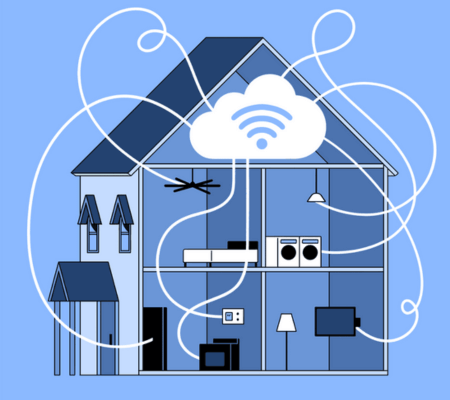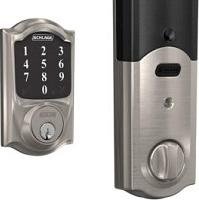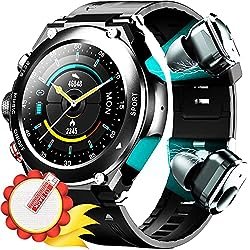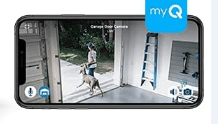In a world where technology has become an inseparable part of our daily lives, even something as simple as locking and unlocking our doors has undergone a transformative evolution. The traditional key lock we’ve relied on for decades faces competition from the sleek and futuristic smart lock. But amidst all the buzz surrounding these high-tech wonders, one question remains in homeowners’ minds: are smart locks safer than key locks?
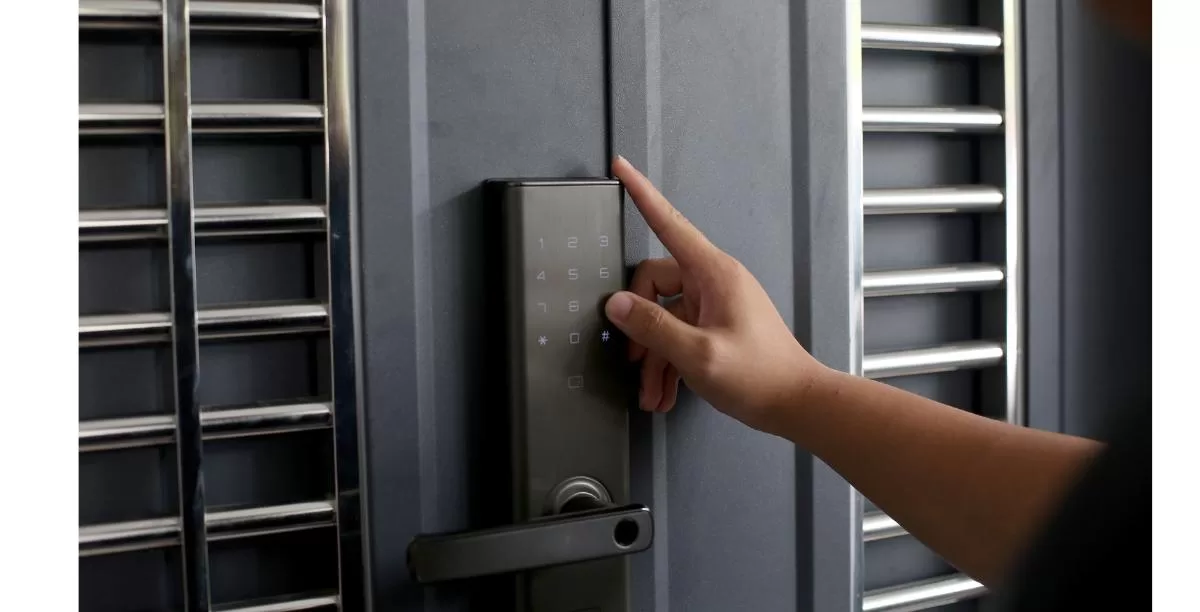
Today, we journeyed to uncover the truth behind this burning query. Join us as we delve into the advantages of smart locks over their conventional counterparts, explore potential vulnerabilities they may possess, and weigh in on why some still prefer good old-fashioned keys. So buckle up and prepare to unlock new insights into home security!
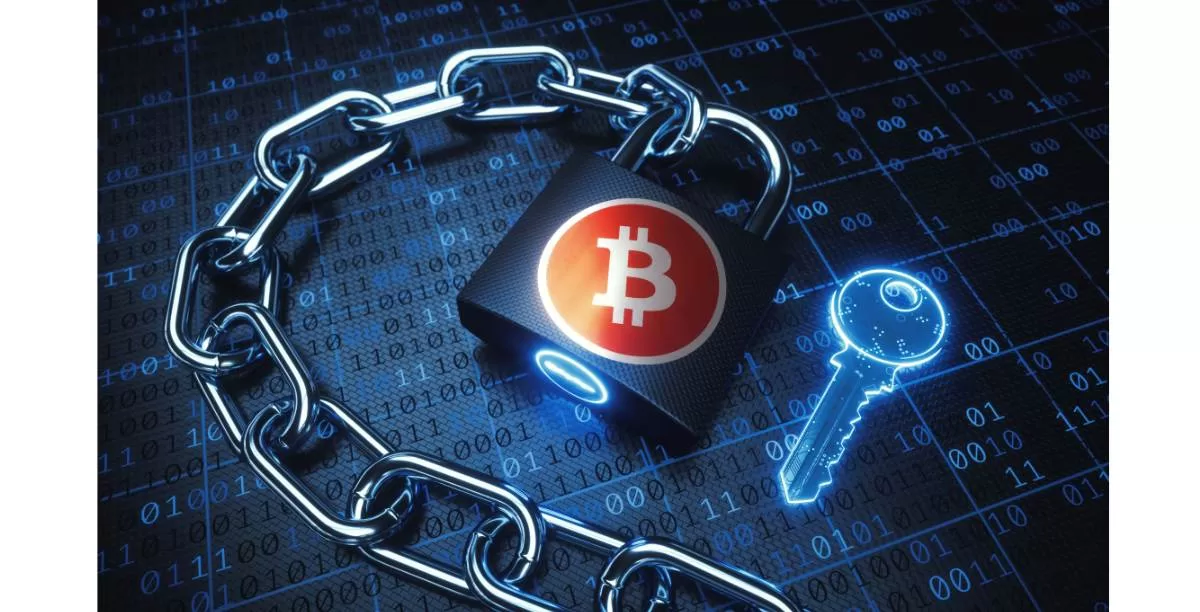
Table of Contents
ToggleAdvantages of Smart Locks over Key Locks
Convenience is a significant advantage of smart locks over traditional key locks. With a smart lock, you no longer need to fumble for your keys or worry about losing them. Use your smartphone or a designated key code to unlock and access your home. This can be particularly convenient when you have your hands full with groceries or need to grant access to someone while you’re not at home.
Related: 6 Best Waterproof Outdoor Smart Locks for Gates
Enhanced security features are another reason why smart locks are gaining popularity. Many smart locks come equipped with advanced encryption algorithms and authentication methods, making it difficult for unauthorized individuals to gain entry. Additionally, some models offer tamper alerts and automatic locking, providing an extra layer of protection.
Remote access and monitoring capabilities set smart locks apart from their traditional counterparts. With a connected app on your smartphone, you can remotely control and monitor the status of your lock from anywhere in the world. Did you forget to lock up before leaving? No problem – check the app and secure your home remotely.
While there are advantages to using smart locks, it’s important to acknowledge potential vulnerabilities. Hacking risks pose a concern for any device connected to the internet, including smart locks. Users must take necessary precautions to minimize these risks, such as regularly updating firmware and using strong passwords.
Another potential drawback is malfunctioning technology. Like any electronic device, there is always a chance of technical issues with smart locks. Whether it’s connectivity problems or software glitches, these issues could potentially leave homeowners locked out or compromise the overall security of their homes.
In conclusion (not conclusive!), although smart locks offer numerous advantages like convenience, enhanced security features, and remote access capabilities compared to key locks, they also come with potential vulnerabilities, such as hacking risks and technological malfunctions, that consumers should consider before deciding between the two options.
1. Convenience
Convenience is one of the key advantages of smart locks over traditional ones. With a smart lock, you no longer have to fumble around for your keys or worry about losing them. Instead, you can use your smartphone or a code to unlock and lock your door.
Imagine arriving home with bags of groceries, struggling to find the right key in a sea of jingling metal. With a smart lock, all you need is your phone. You can unlock the door with a tap on an app or even voice commands if you have a compatible device.
Not only does this make entering and exiting your home effortless, but it also allows you to grant access to others remotely. Say goodbye to hiding spare keys under doormats or lending out physical keys that could get lost or copied without your knowledge.
Furthermore, some smart locks have features like geofencing capabilities that automatically lock or unlock your door when you enter or leave a certain radius around your home. No more worrying about whether you remembered to lock up before leaving the house.
In terms of convenience alone, it’s clear that smart locks are surpassing their traditional counterparts. But what about security? Let’s explore how these modern marvels enhance security in our next blog section…
2. Enhanced Security Features
Regarding security, smart locks have some distinct advantages over traditional key locks. One of the key features that sets smart locks apart is their enhanced security capabilities.
First and foremost, many smart locks offer advanced encryption technology to protect against hacking attempts. This means that even if someone tries to gain unauthorized access to your lock’s digital interface, they will be met with a highly secure barrier. Additionally, many smart locks have built-in tamper detection mechanisms that alert you in real-time if someone attempts to force open your lock.
Another important aspect of enhanced security offered by smart locks is the ability to create unique user codes for different individuals. With a key lock, you would need multiple keys or copies made for each person who needs access. However, with a smart lock, you can assign individualized codes that can be easily added or revoked.
Furthermore, many smart locks also provide activity logs and notifications that allow you to monitor who has accessed your home and when. This provides an extra layer of security and peace of mind, knowing exactly who has come and gone from your property.
The enhanced security features offered by smart locks make them a compelling choice for those looking to prioritize safety without sacrificing convenience.
3. Remote Access and Monitoring
One of the standout advantages of smart locks over traditional key locks is the ability to access and monitor your lock system remotely. With a smart lock, you can control your door from anywhere in the world using your smartphone or tablet.
Imagine letting someone into your home while you’re at work or on vacation without giving them a physical key. Smart locks allow you to grant temporary access codes that expire after a set period, ensuring that only authorized individuals can enter.
Additionally, many smart locks offer real-time monitoring capabilities, allowing you to receive notifications when someone enters or exits your home. This feature provides an extra layer of security by informing you about who is always coming and going.
Furthermore, remote access and monitoring features allow homeowners to easily integrate their smart lock with other connected devices in their home security system. You can sync it with security cameras, alarm systems, and even virtual assistants like Alexa or Google Home for enhanced convenience and peace of mind.
The ability to remotely access and monitor your smart lock offers unparalleled convenience and control over your home’s security. It allows for easy access to permissions management while providing real-time activity updates around your front door.
Potential Vulnerabilities of Smart Locks
While smart locks offer convenience and enhanced security features, it’s essential to recognize that they also come with potential vulnerabilities. One significant concern is the risk of hacking. As with any internet-connected device, smart locks can be susceptible to cyberattacks if not correctly secured.
Hackers may exploit weaknesses in the lock’s software or network connection to gain unauthorized access. This could potentially compromise your home or property’s security. It is crucial, therefore, for manufacturers and users alike to prioritize strong encryption protocols and regular software updates to mitigate these risks.
Another vulnerability lies in the technology itself. Like any electronic device, smart locks are prone to malfunctions. Power outages or technical glitches could result in temporary lockouts or even complete failure of the locking mechanism.
Additionally, reliance on power and Wi-Fi connectivity poses a potential weakness for smart locks compared to traditional key locks. Accessing your home might become challenging or impossible when there is a power outage or unstable internet connection.
While smart locks offer numerous benefits, users must be aware of their potential vulnerabilities and take appropriate measures, such as using strong passwords and regularly updating software to maintain optimum security.
1. Hacking Risks
Smart locks offer convenience and enhanced security features but are not without vulnerabilities. One potential risk of using smart locks is the possibility of hacking.
In today’s digital age, hackers constantly find new ways to exploit technology for their own malicious purposes. Smart locks that rely on wireless communication and internet connectivity can be targets for these cyber criminals.
While manufacturers take steps to ensure the security of their smart lock systems, no system is entirely foolproof. Hackers may attempt to gain unauthorized access by exploiting weaknesses in the lock’s software or intercepting wireless signals.
Choosing a reputable brand with a track record of strong cybersecurity measures is crucial to mitigate the risk of hacking. Regularly updating the lock’s firmware and using unique and complex passwords can also help enhance its resistance against hacking attempts.
Additionally, homeowners should consider implementing additional layers of security, such as two-factor authentication or biometric verification, when accessing their smart locks remotely via smartphone apps or voice assistants.
While there are potential hacking risks associated with smart locks, taking proper precautions can significantly reduce the likelihood of falling victim to such attacks. Users need to stay informed about emerging threats and follow best practices for securing their devices.
2. Malfunctioning Technology
While smart locks offer a range of benefits, it’s essential to acknowledge that they are not without their potential downsides. One such concern is the risk of malfunctioning technology.
Imagine this scenario: you’re rushing out the door, late for an important meeting, and suddenly, your smart lock fails to respond. Maybe it’s a glitch in the system or a connectivity issue with your mobile device. Whatever the cause, being locked out of your home due to a technological hiccup can be incredibly frustrating.
Another aspect to consider is the reliance on power and Wi-Fi for smart locks to function properly. In case of a power outage or if your internet connection goes down, accessing your home could become problematic. On the other hand, key locks do not require any external factors; they rely on physical mechanisms that have been tried and tested over time.
It’s worth noting that as technology advances and manufacturers refine their products, these issues may become less prevalent. However, at present, there is still some room for improvement when it comes to ensuring consistent performance and reliability in smart lock systems.
While smart locks offer convenience and enhanced security features compared to key locks, there are potential vulnerabilities associated with them as well. Malfunctioning technology can lead to unforeseen complications and even lockouts if not addressed promptly. Additionally, relying on power and Wi-Fi connectivity can pose challenges during outages or disruptions in service.
Advantages of Key Locks over Smart Locks
Simplicity is one of the most significant advantages of key locks. There are no complicated apps or software with a traditional lock and key system. You insert the key into the lock, turn it, and you’re in.
Another advantage is that key locks do not rely on power or Wi-Fi connections. Unlike smart locks, which require batteries or electricity, a key lock will work if you have the physical key. This means you can still access your home even during a power outage or if your internet goes down.
Additionally, some people prefer the tactile nature of using keys. There’s something satisfying about physically unlocking a door with a key rather than relying on digital technology.
Furthermore, unlike smart locks, which can sometimes be vulnerable to hacking risks, traditional key locks are not susceptible to these types of attacks. Proper security measures (such as high-quality keys and sturdy locks) can make it difficult for intruders to gain unauthorized access.
While smart locks offer convenience and enhanced security features like remote access and monitoring capabilities, they also come with potential vulnerabilities, such as hacking risks and malfunctioning technology. On the other hand, traditional key locks provide simplicity and reliability without relying on power or Wi-Fi connectivity. Choosing between smart locks and key locks depends on personal preferences and individual needs for security.
1. Simplicity
Smart locks may have advantages, but there is something to be said about the simplicity of key locks. With a traditional lock and key system, you only need a physical key to access your home or office. There are no complex apps or passwords to remember.
Key locks also don’t require any power source or internet connection. This means that even during a power outage or your Wi-Fi goes down, you can still rely on your trusty key lock to secure your property.
In addition, key locks are straightforward to use. There’s no need to navigate multiple menus on an app or worry about technology glitches. Just insert the key into the lock, turn it, and voila – you’re in!
Furthermore, hacking or cyber-attacks are less risky with a traditional lock and key system. Smart locks rely on technology and connectivity, making them vulnerable to hackers who could potentially gain unauthorized access.
While smart locks offer innovative features and convenience, sometimes simplicity is what we truly need when it comes to securing our homes and belongings. So before jumping onto the smart lock bandwagon, consider whether the simplicity of a good old-fashioned lock and key might be more appealing in certain situations.
2. No Need for Power or Wi-Fi
The debate between smart and key locks continues in today’s digital age. While smart locks offer convenience, enhanced security features, and remote access capabilities, they also come with potential vulnerabilities, such as hacking risks and malfunctioning technology. On the other hand, traditional key locks provide simplicity and do not rely on power or Wi-Fi connections.
Choosing between smart and key locks involves personal preference and individual needs. If you value convenience, advanced security measures, and the ability to monitor your home remotely, then a smart lock might be the right choice.
However, a traditional key lock is a reliable option if you prefer simplicity and want a lock that will never fail due to technical glitches or power outages.
It’s important to weigh both the advantages and disadvantages of each type of lock before deciding. Consider factors such as your lifestyle, level of tech-savviness, budget constraints, and overall peace of mind when securing your home or property.
Regardless of which type of lock you choose – a cutting-edge smart lock or an old-fashioned key lock – always prioritize safety by ensuring proper installation and regular maintenance. Remember that no locking mechanism is 100% foolproof; therefore, it’s crucial to implement additional security measures, such as alarms, surveillance cameras, and motion sensor lights, to create multiple layers of protection for your home.
So don’t rush into making a decision; carefully evaluate your requirements before determining whether smart or key locks suit your needs.

